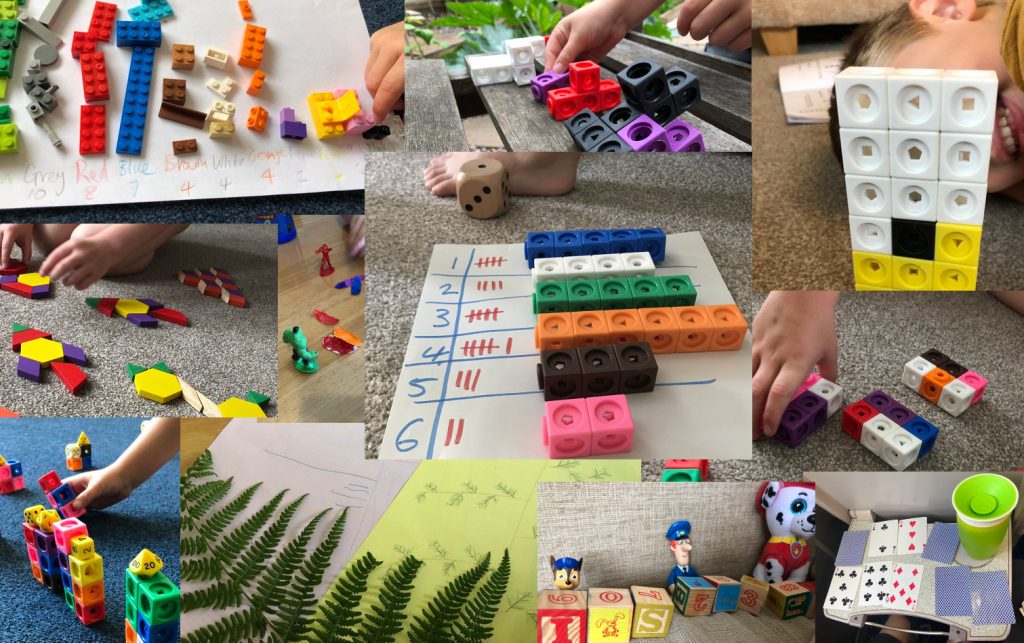
#tmwyk is a Twitter hashtag which stands for some approximation of “Talking math(s) with your/young kids”. It is used to share mathematical interactions with children. It is also the subject of my MathsJam talk this weekend.
For me, I tend to use #tmwyk to share playful interactions with my son, following his interests and the mathematics that we find in the world around him. I’m not trying to teach anything in particular, nor am I trying to limit his interests to what might come up at school.
“Algebra?” said Madam Frout … “But that’s far too difficult for seven-year-olds.”
Thief of Time, Terry Pratchett.
“Yes but I didn’t tell them that, and so far they haven’t found out,” said Susan.
So it covers some formal things like place-value, should this take his interest.
It also includes some recreational maths classics.
Also some items that might be less curriculum-relevant. His Six and Eight Bridges of Königsberg solutions were superb, as was his Two Utilities Problem.
But it also is just sometimes whatever mundane object has taken his interest.
Object graphs are good fun.
Number blocks are amazing, and lead to all sorts of mathematical play and interesting insight.
My son makes conjectures, which he then proves or disproves using number blocks.
His best invention may be the concept of the sillion. This is in the line of million, billion, trillion, etc. except it’s silly big, and behaves silly. For example, there are no bigger numbers than a sillion; if you adds lots of sillions the total get smaller.
He has the idea that numbers go on forever – in both positive and negative directions.
All this thinking about numbers can get pretty serious. For example, I’m entirely happy with this as a four-year-old’s proof.
I’m not at all qualified to speak about early years or primary education, but I am fascinated in how much good his playing with mathematical ideas seems to do. I’m interested more broadly in the use of play in mathematics education, though. I teach a final year undergraduate module called Game Theory and Recreational Mathematics. If you are interested to learn more about using recreational maths in education and the design and operation of our module, you can read our article about this: ‘The potential of recreational mathematics to support the development of mathematical learning‘.
This is great! If you haven’t already seen it, you would enjoy Math from Three to Seven by Alexander Zvonkin. He shares lots of puzzles and conversations had with his kids and a few of their friends while running a Math Circle for them before they started school.
http://www.msri.org/people/staff/levy/files/MCL/Zvonkin.pdf